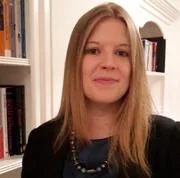Should class be protected under law?

Contents
As it stands, there is nothing currently embedded in UK law to prevent class discrimination. It is perfectly legal to treat someone unfairly in an educational, healthcare or professional setting on the basis of social class. A person can be denied an opportunity based on their accent, their postcode, or any other indicator of their socio-economic background. Introducing class as a protected characteristic within the Equality Act would provide the legal framework required to tackle discrimination and disadvantage, says LSE’s Dr Jennifer Sheehy-Skeffington, co-author of Tackling social class inequalities: #Makeit10.
The report, commissioned by the British Psychological Society (BPS), provides a succinct review of psychological evidence on social class, detailing the damaging impacts of class-based discrimination across the domains of education, work and health. In it we see the different ways in which people with limited economic, social, and cultural resources face structural adversity, and in turn, how these experiences can influence someone’s trajectory in life. This comprehensive evidence base also demonstrates how the psychological dimensions of prejudice and discrimination contribute to class-based inequalities, stereotyping and the prevalence of classism in society more broadly.
Social class should be studied more by psychologists
"This started with a group of psychologists from multiple fields who care about this issue, and felt two things needed to happen. Firstly, psychology researchers should have a place at the table in debates around social mobility and social class-based discrimination. Secondly, social class should be studied more in psychology. Bringing together researchers from across different subfields of psychology, with a common interest in class, is a worthwhile pursuit," says Dr Sheehy-Skeffington.
"After a competitive voting process, our proposal was selected by the BPS membership to be their priority campaign for 2021-22. We decided that the first focus of our efforts would be to produce an evidence review, because we were lacking a coherent overview of what's going on in the psychology of social class, especially as it pertains to policy areas. So that is what we set out to do."
The report approaches the relationship between social class and psychology in two ways: via psychological causes and via psychological consequences. Firstly, Dr Sheehy-Skeffington and her co-authors look at the psychological origins of prejudice and classism – where it comes from, why it emerges, and how it can be subtly embedded in how institutions operate. Secondly, they discuss the psychological impact of marginalisation and discrimination based on socioeconomic background, noting that this is often compounded by other forms of exclusion along the lines of gender, race, and other protected characteristics. Both approaches are very much attuned to the structural dynamic – envisioning individual instances of classism as symptoms of broader systemic inequalities in society, rather than the root issue itself.
Psychology researchers need to have a place at the table on debates around social mobility and social class-based discrimination.
Classism can impact on all aspects of everyday life
In each chapter we see how classism and its respective impacts permeate each aspect of everyday life across work, education and health. Life outcomes in every category are significantly influenced by social class and impeded by social class-based discrimination. These findings challenge meritocratic ideals held by many in society – the underlying notion that despite all odds, a person can go on to become anything they want, if they simply work hard enough. Dr Sheehy-Skeffington notes: "What we perceive as the outcome of merit can be the outcome of other social processes playing out."
"When we make assumptions about someone's politeness, about their interpersonal skills, about how well put together they are, whether they have good taste, or if they are a good person to go to the pub with or to take out a client – what informs those judgments is actually a particular template for a way of behaving that is classed. When we remove some of the neutrality of that template, we come to see that what has been viewed as meritorious ways of behaving, are more often than not simply norms of the middle and upper classes."
With regards to where responsibility for change lies, Dr Sheehy-Skeffington is clear: "Importantly, by saying psychology researchers need a place at the table, we do not mean to say that the site of intervention must be psychological or individual. This report does a good job of demonstrating that there is an important psychological dimension to this issue, but it mandates change at structural, legislative and institutional levels."
It is vital to measure class-based exclusion and inequalities
As well as the impact of legislative change, Dr Sheehy-Skeffington highlights other important consequences: "Once you make something illegal, you propel efforts to measure it. In a professional capacity, the inclusion of social class as a protected characteristic under the Equality Act would mandate resources for properly measuring class-based inequalities and exclusion in recruitment, pay and promotion. It would force organisations to make sure that they're not practising discrimination. Broadly speaking, it would also require all public bodies to consider how their decisions and policies affect poor and working-class people."
In addition to the legal mandates, Dr Sheehy-Skeffington believes it could also create a broader societal shift in which everybody is more aware of social class as a potential form of discrimination, as well as the structural dynamics that cause socioeconomic marginalisation. So, as well as providing legal recourse to those affected, it has the potential to expand discourse and awareness. Though she notes that introducing class as a protected characteristic will not eliminate classism, it is a step in the right direction.
Dr Jennifer Sheehy-Skeffington was speaking to Sophie Charlotte, Media Relations Officer at LSE.
Download a PDF version of this article




